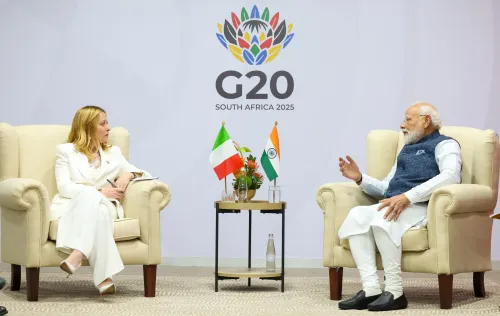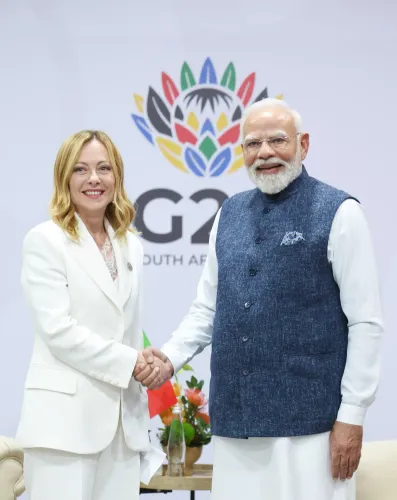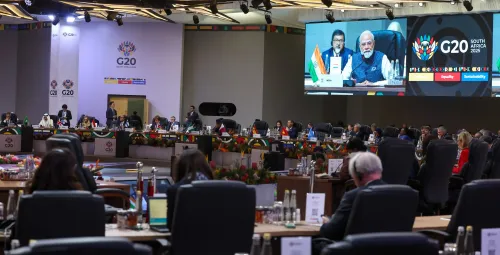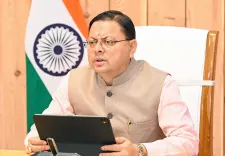How is South Korea's President Promoting Cooperation with Japan?
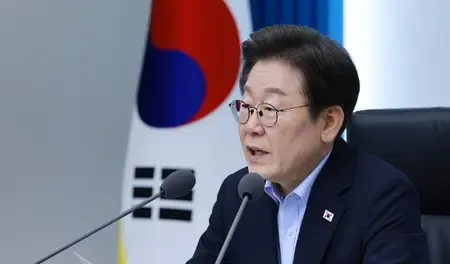
Synopsis
Key Takeaways
- President Lee Jae Myung seeks to enhance relations with Japan through active diplomacy.
- Emphasis on confronting historical grievances can foster trust.
- Upcoming visits aim to deepen economic ties and regional cooperation.
- Trade discussions focus on stabilizing supply chains and addressing technological challenges.
- Key summits in the region present opportunities for collaboration.
Seoul, Aug 15 (NationPress) President Lee Jae Myung of South Korea announced on Friday his intent to foster "forward-looking, mutually beneficial cooperation" with Japan through proactive "shuttle diplomacy". He expressed hope that Japan will confront its history of wartime aggression.
Lee delivered these remarks during a speech commemorating the 80th anniversary of the liberation of the Korean Peninsula from Japan's 1910-45 colonial rule. He is scheduled to visit Tokyo for summit discussions with Japanese Prime Minister Shigeru Ishiba later this month, ahead of a planned meeting with U.S. President Donald Trump, as reported by the Yonhap News Agency.
"Guided by the principle of pragmatic, national interest-focused diplomacy, we will seek forward-looking, mutually beneficial cooperation with Japan while holding frequent meetings and open dialogues through shuttle diplomacy," Lee stated.
Marking the 60th anniversary of normalized diplomatic relations, Lee emphasized the importance of confronting painful historical issues to redefine bilateral ties, calling Japan "a neighbor across the sea" and "an indispensable partner" in economic development.
He expressed hope that the Japanese government would directly address the painful history and work towards maintaining trust between the two nations.
Lee's upcoming two-day visit to Japan on Aug. 23-24 will allow for the strengthening of personal ties with Ishiba and the exploration of enhanced trilateral cooperation with the United States, as well as discussions regarding regional peace and stability, according to the presidential office.
Earlier, South Korea's trade minister engaged with the Japanese ambassador to South Korea to deliberate on ways to bolster the economic partnership amidst rising uncertainties in the global trade landscape, officials reported.
Trade Minister Yeo Han-koo met with Ambassador Koichi Mizushima in Seoul, coinciding with President Lee Jae Myung's preparations for his inaugural summit with Prime Minister Shigeru Ishiba next Saturday.
Yeo underscored the necessity of enhancing practical economic cooperation between the two nations, coinciding with the 60-year anniversary of normalized diplomatic relations.
He also suggested collaborative efforts to stabilize supply chains and address trade-related challenges in sectors like artificial intelligence (AI) and climate change.
Additionally, Yeo advocated for improved communication between the overseas missions and trade promotion agencies of both countries to ensure the successful hosting of the Asia Pacific Economic Cooperation (APEC) summit in South Korea and the Osaka Kansai Expo in Japan this year.


